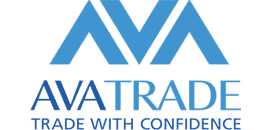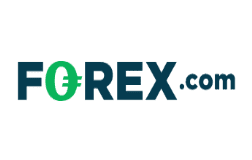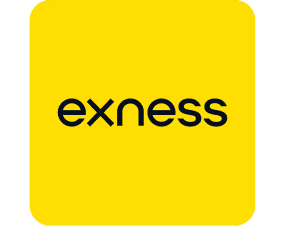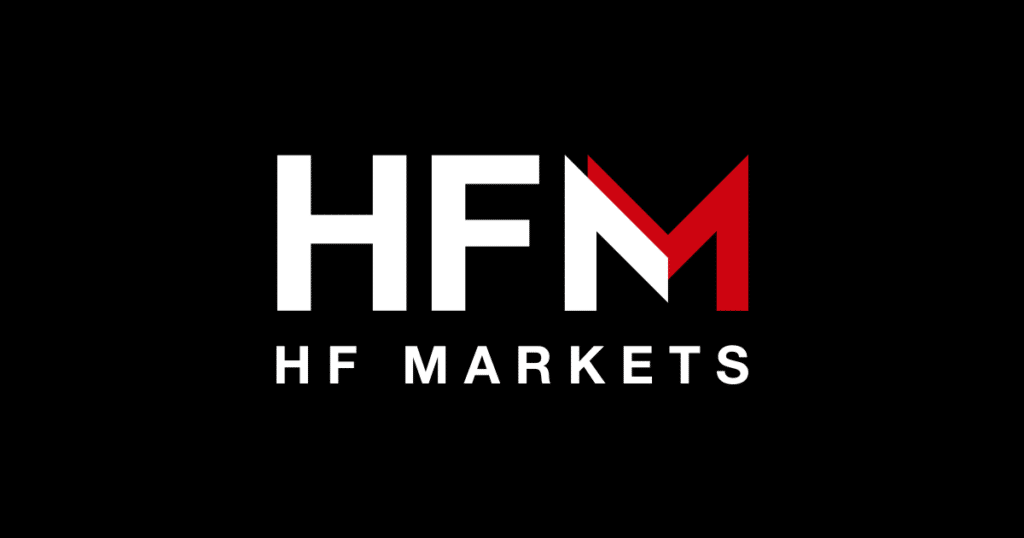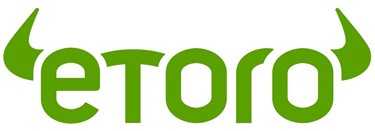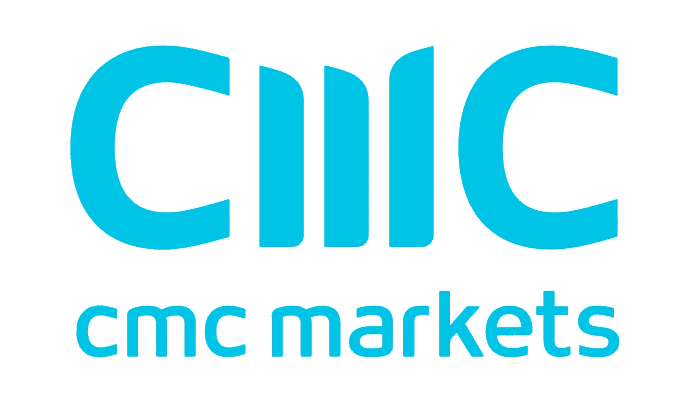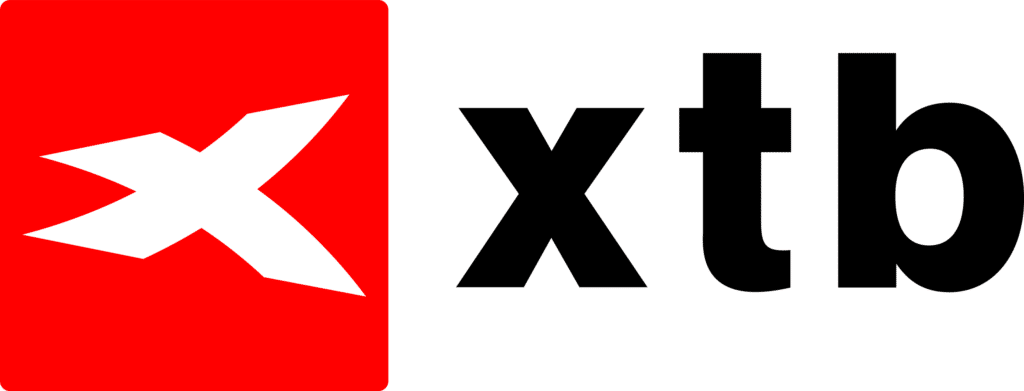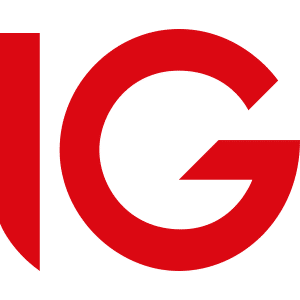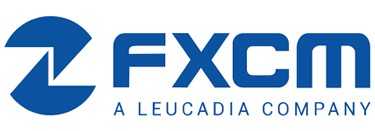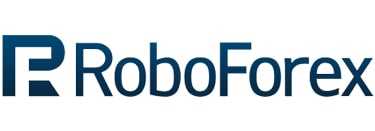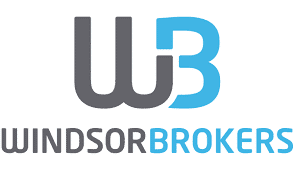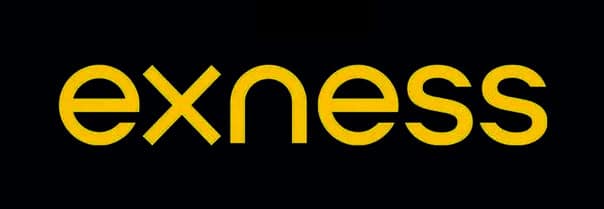Forex Trading for Beginners in Botswana

Forex Trading for Beginners for Botswana traders revealed. We tested the best guide to forex trading for beginner Botswanan Traders.
This is a complete guide to forex trading in Botswana.
In this in-depth guide you’ll learn:
- What is forex trading?
- Which brokers do the most successful traders use?
- What is some jargon that all beginner forex traders must understand?
- Which brokers offer a sign-up bonus for first-time traders in Botswana?
- Which trading platforms offer a mobile app on IOS and Android for Botswanan Traders?
And lots more…
So if you’re ready to go “all in” with the best-tested forex trading guide…
Let’s dive right in…
- Louis Schoeman
10 Best Forex Brokers in Botswana for 2024
Rank
Broker
Review
Regulators
Min Deposit
Official Site
Forex Trading for Beginners in Botswana
Forex Trading Defined
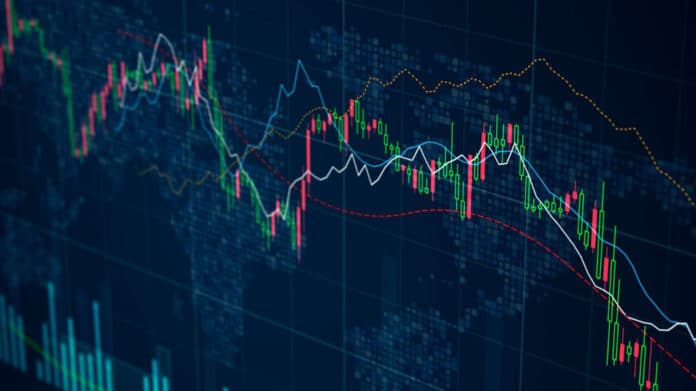
Forex is an abbreviation for foreign exchange, which refers to exchanging one currency for another. This procedure may be conducted for several purposes, including business, tourism, and facilitating international commerce.
Forex is exchanged on the forex market, which is available 24 hours a day, five days a week, for the purchase and sale of currencies and is used by banks, corporations, investment organizations, hedge funds, and retail traders.
The FX market is by far the biggest and most liquid financial market in the world, with an estimated average daily turnover of over US$6.5 trillion — up from $5 trillion only a few years ago.
The basics of the Forex Market for Botswanan Traders
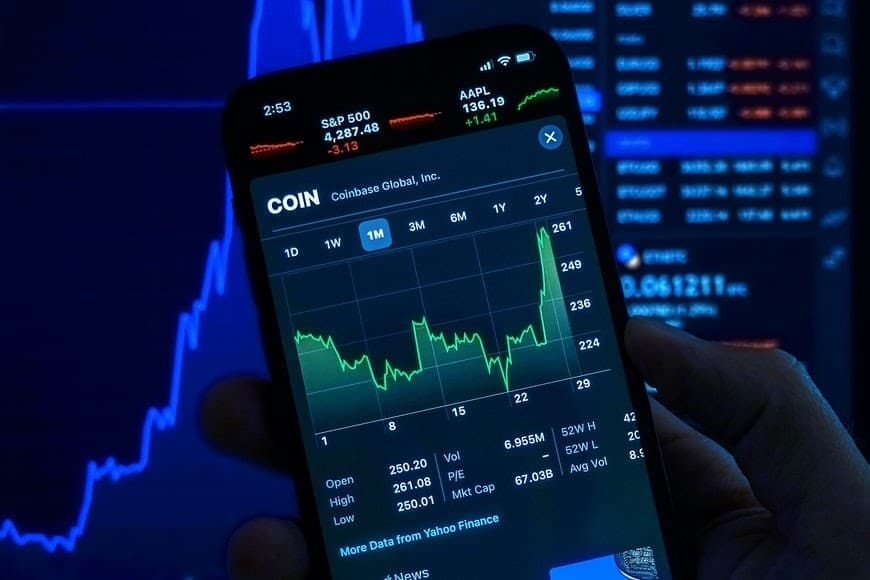
Forex trading may be thrilling and profitable, but it can also be challenging for beginners.
New market participants undervalue the significance of financial education, lack risk management skills, have excessive expectations, and cannot regulate their emotions, causing them to behave impulsively and impair their performance.
In addition, traders in all markets must expect drawdowns and losses since even the most effective tactics only work intermittently.
The foreign exchange market, commonly known as ‘forex’ or the ‘FX market,’ is a worldwide, decentralized marketplace for the purchasing and selling (short) of various currencies.
This trading occurs via brokerage transactions, over-the-counter (OTC) marketplaces, or the interbank system, as opposed to controlled exchanges.
The forex market is traded by various market players, including private people (retail traders) operating from home on personal computers or mobile devices.
Retail traders and professionals trade foreign exchange via, among others, funds, institutions, central banks, and commercial banks. Forex has become the most liquid market in the world due to the following factors:
➡️ With daily transactions of trillions of dollars, its magnitude is enormous.
➡️ 24-hour access Sunday through Friday.
➡️ Numerous currencies and currency pairings are available.
➡️ All price volatility degrees range from calm market activity to historic uptrends and downtrends.
➡️ Reduced account minimums.
➡️ Low transactional expenses (commissions, spreads, fees, and interest).
Where immediate cash payments are made, spot markets are used for trading foreign currency. In contrast, derivatives markets provide traders access to more complex instruments, including forwards, futures, options, and currency swaps.
Individuals often trade foreign exchange to speculate on price increases or decreases, generating a profit or loss on each closed position. In contrast, most institutional forex activity is focused on hedging against currency and interest rate risk or diversifying huge portfolios.
New traders create accounts with forex or contracts for difference (CFD) brokers, assuming risk when speculating on currency pairings such as the Euro vs. the US Dollar (EUR/USD) or the US Dollar versus the Japanese Yen (USD/JPY).
In a decentralized market, the participant opens a buy or sell (short) position and records a profit or loss depending on the difference between the opening and closing prices, just as they would at a standard FX broker.
There is a legal obligation to swap the difference between the entry and exit prices of the underlying asset at a CFD broker. For example, the underlying asset might be a currency pair or any financial instrument like stocks, bonds, or futures.
Forex lot sizes are identical regardless of currency pair, but CFDs provide more size flexibility. This advantage correlates to higher risk management and personalization based on a trader’s expertise and market approach.
Forex Spot Market
The Spot market refers to the instantaneous exchange of currencies at the current exchange rate. This is a substantial percentage of the foreign exchange market and includes buyers and sellers from the whole financial sector and people trading currencies.
Forward Market
The forward market entails an agreement between buyer and seller to exchange currencies at a predetermined price at a future date. There is no exchange of real currency, just the value. Frequently, the forward market is utilized for hedging.
Forex Futures Market
Futures markets are like forward markets in that prices and dates are predetermined. However, futures markets are regulated and occur on an exchange, which is the major distinction. This eliminates the risk associated with other markets. Futures are utilized for hedging as well.
Terms and Definitions that Botswanans must Know
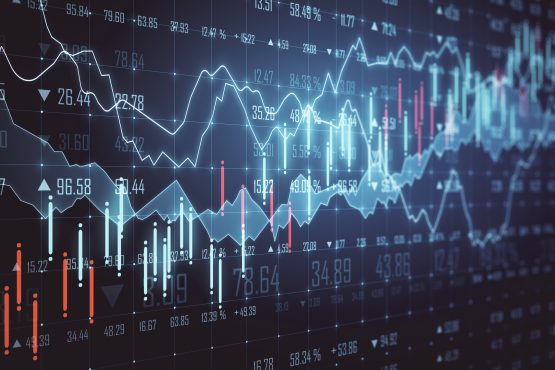
There is no doubt that forex trading provides a multitude of benefits. However, it does not prevent it from being complicated for people new to the forex market.
Numerous novice traders will discover numerous words and phrases pushed in their approach. While there are several words that Botswanans must be familiar with, the following are some of the most prevalent and often used while beginning their trading careers.
➡️ Currency Pair – When trading Forex, currencies are traded in pairs, with one currency being bought and the other sold. Collectively, they comprise the exchange rate.
➡️ Base Currency – Base currency is the currency that precedes all others in a currency pair
➡️ Quote Currency – The second currency that is quoted in a currency pair.
➡️ Exchange rate – The exchange rate is the cost of exchanging one currency for another.
➡️ Short Position (Sell) – Short position (sell) a short position is the selling of an asset in anticipation that its market value will decline.
➡️ Long Position (Buy) – Long position (buy) a long position is the acquisition of an asset with the hope that its market price will grow.
➡️ Bid and Ask Price – The difference between the bid price and the market price for the sale of an asset, while the Ask price is the current market price for an asset.
➡️ Spread – Spread the price difference between “bid” and “ask” (the selling price and the purchase price).
➡️ Pips – A pip, which stands for “percentage in point,” is the smallest price fluctuation in any exchange rate. A pip is the last number after the decimal point, and they are the unit of measurement for market gains and losses.
➡️ Appreciation refers to an increase in a currency’s exchange rate value.
➡️ Depreciation – Depreciation/devaluation is the decline in exchange rate value.
➡️ Gapping is an opening price much higher or lower than the previous day’s closing, with no trading activity. This indicates that a limit or stop order may be executed at a price other than the planned price.
➡️ Lot – Foreign exchange is exchanged in lots. A standard lot equals one hundred thousand units of the base currency. This is equivalent to $100,000 in US currency. A mini lot has 10,000 units, whereas a micro lot contains 1,000.
➡️ Leverage enables investors to boost their trading power and manage a larger market position with little initial commitment. For example, an online broker may provide leveraged trading up to 30 times the original investment of a trader.
➡️ Margin – Margin = the minimum deposit necessary to maintain an open position (e.g., the required margin for a $150,000 open position with a leverage of 30 is $5,000).
➡️ Risk Management – Risk management uses measures to regulate or decrease financial risk. An example would be a stop-loss order designed to limit trading losses.
➡️ Stop-loss Order – A stop-loss order is a risk management tool that enables a deal to be stopped when it reaches a certain price. If prices continue in an unfavourable direction for the investor, this may safeguard against additional losses on an open investment. However, due to slippage, placing a conventional stop loss order does not ensure that you will be filled at the specified market price.
➡️ Take Profit Order – A take-profit order is a risk management instrument that closes a trade automatically when it hits a predetermined profit target. This may safeguard against the loss of profits in the event of an abrupt price reversal before the investor can cancel the position.
➡️ Profit/Loss – Profit/Loss of a transaction’s realized (closed) trading positions’ revenues.
➡️ Account Currency is the currency selected when opening an account with a forex broker. Therefore, your overall profit and loss will be transformed into that currency.
➡️ Equity is the sum of all funds in your trading account, including profits and losses. For example, if you generate a profit of USD 3,000 and put USD 10,000 into your account, your equity is USD 13,000.
➡️ Used Margin – It is the amount of money set aside by your broker so that your open positions may be maintained, and you do not incur a negative balance.
➡️ Free Margin – The number of funds in your trading account may be used to establish new positions.
➡️ Margin Call – Margin calls are a crucial component of risk management: as soon as your equity falls below a certain percentage of the margin utilized, your forex broker will warn you that you must deposit more funds to preserve your position.
➡️ Requote – Some brokers use the unfair execution approach of requoting. It happens when your broker does not want to execute your order at the specified price and slows down execution for personal gain.
Forex Trading in Botswana
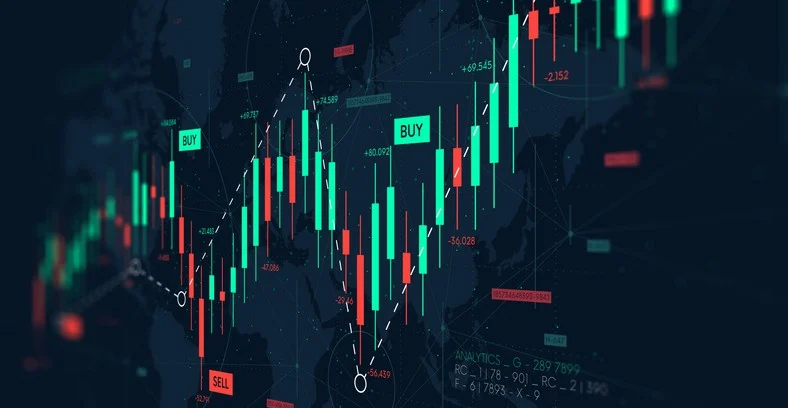
Botswana was formerly considered the second poorest country in the world. However, the nation in southern Africa is presently one of the few middle-income countries in the area. The growing income of the middle class has generated an upsurge in retail interest in the financial markets and FX trading.
Botswana gives forex traders a substantial advantage compared to many other African countries. According to Transparency International’s Corruption Perception Index, Botswana is the least corrupt country in Africa. In other places of the continent, forex trading may be difficult. However, investors in Botswana have an inside track and government support.
How is Forex regulated in Botswana?
A Bureau de Change is a regulated company authorized by the Bank of Botswana Act to purchase and sell foreign currency.
These firms are licensed to assure the public that they operate responsibly and in line with best business practices. In addition, BOB monitors the performance of Bureau de Change, which is expected to function under the Bureau de Change laws of 2004.
Therefore, anybody is prohibited from engaging in foreign currency transactions without a license. Furthermore, Bureau de Change may only operate from BOB-approved locations and is mandated to restrict daily cash transactions per customer to P10,000.00.
Because of these regulations, most Botswanan traders participate in CFD forex trading, allowing them to use the services of international brokers such as AvaTrade, Exness, HFM, and several other reputable trading service providers.
What drives the prices in the Forex Market?
Central Bank Interest Rates
On a global scale, there is no greater effect on exchange rate values than central banks and their choices about interest rates. If a central bank raises interest rates, their economy is expanding, and they are optimistic about the future.
Conversely, suppose a central bank lowers interest rates. In that case, its economy is declining, and it will not be overly optimistic about the future. This style of representation may be unduly simplistic, yet it is often how central banks react to economic shifts.
Complications arise when traders attempt to predict what central banks will do with interest rates. For example, suppose traders anticipate an increase in interest rates. In that case, they often purchase the currency long before the central bank is slated to announce its decision, and vice versa.
Nonetheless, suppose a central bank fails to behave as anticipated. In that case, traders’ reactions may be severe as they abandon their predetermined positions.
Since the Great Financial Crisis of 2008, most of the world’s leading central banks have implemented policies emphasizing communication to communicate their plans for the near future to the market.
If a central bank indicates that it may increase interest rates sooner rather than later, it may be advantageous to purchase that currency.
Intervention from Central Banks
Occasionally, a currency’s value may be so detrimental to an economy that the nation’s central bank feels compelled to intervene and actively affect the value in its favor.
To prevent their currency from gaining excessively, central banks may flood the market with their currency by releasing previously inaccessible funds (reserves) and making them accessible to the general population.
The increase in accessible currency dilutes the value of the existing currency, and the currency Therefore, devalues.
Taking advantage of intervention is especially difficult because it is often not conveyed to the public until after it has happened, unlike changes in interest rates.
However, there may be indications that intervention is imminent, especially when a central bank consistently asserts that its currency is historically overpriced. However, its timing is difficult to predict and is often unexpected.
Options
The bulk of FX options activity is traded for international commercial objectives, allowing corporations to offset the risk of currency value fluctuations. However, a massive portion of the volume traded is devoted to speculating.
Double No Touch (DNT) options are the sort of option in which FX traders are most interested. These options are often put on round numbers in major currency pairings, such as the EUR/USD or USD/JPY, frequently pursued by highly liquid investors.
If a currency pair moves significantly and approaches certain psychological areas of interest, it may occasionally leap past that level and immediately return. Occasionally, the market approaches a level but never quite reaches it before retreating.
Economic Growth
Quarterly, investors await the gross domestic product (GDP) figures that measure the economy’s overall health. These reports illustrate the annualized change in the value of all products and services produced by the economy, adjusted for inflation.
Since Forex is traded in pairs, it is sufficient for one nation to miss its GDP forecast for a strong response to ensue, as investors rush to sell it in favour of purchasing the more promising currency.
Employment Data
The unemployment rate is a vital indicator of the status of the economy overall.
The most important employment news occurs on the first Friday of each month when the Bureau of Labour Statistics of the United States releases the non-farm payroll report. It indicates the change in employment without accounting for seasonal agricultural work.
While the global market is processing the news during this event, dollar crosses often undergo huge fluctuations. For example, it is unusual for prices to fluctuate by more than 1 percent in either direction.
Fear and Greed in the Forex Market
Fear may transform a falling instrument into a full-scale panic. In contrast, greed can transform a rising market into a reckless buying frenzy.
One of the most well-known instances in the late 1920s was when purchasing anything on Wall Street was fashionable.
As the common belief was that stock prices would continue to climb indefinitely, covetousness was at its peak. Then, on Black Tuesday, dread precipitated the Great Depression.
The connection between the two emotions might also operate in reverse. For example, in the 2010s, the crisis in the Eurozone and Greece caused widespread concern, which resulted in severe EUR selling.
Shortly afterward, however, greed set in and pushed the currency to levels damaging to employment and inflationary dynamics, to the point that the European Central Bank was compelled to devalue the currency using a variety of market mechanisms forcibly.
It may be simple to identify the impacts of fear and greed on markets after they have taken place. However, predicting when they will reverse in the present is harder.
Retail Sales or Consumer Spending
Retail sales figures are often utilized as a leading indicator because of their monthly publication. Therefore, their impact on macroeconomic indicators, such as quarterly GDP figures, has yet to be seen.
When customers have a sense of security, they will spend more, resulting in a rise in economic activity. However, suppose productivity and earnings are not increasing while retail sales are increasing. In that case, this may indicate that people are preparing for a downturn.
Therefore, retail sales should not be the only indicator of emotion.
News
Both planned and unplanned news may influence the market in severe ways. Many investors revere scheduled news that may predictably impact markets. Regarding unanticipated occurrences, there is nothing we can do; all we can do is manage risk and hope for the best.
Not all planned news events influence the market. However, as a trader, it is part of your responsibility to know when and how to manage key market-moving events.
Employment statistics from the big financial centers tend to impact markets more than manufacturing sales reports, and retail sales figures tend to stir things up more than money supply reports.
The Economic Calendar is a fantastic tool for predicting which news will have the most effect.
Even if not all significant news items, move the markets when their number is called, they have the highest possibility of doing so, and knowing when the markets will move may be one of the biggest advantages you have as a trader.
The Advantages and Disadvantages of Forex Trading
| ✔️ Advantages | ❌ Disadvantages |
| There are fewer laws than in other markets. Therefore, investors are not subject to the stringent standards and regulations in other markets. | Even if the market’s lack of regulation provides benefits, it also introduces hazards since there is no major control to guarantee risk-free transactions. |
| No clearing houses or centralized organizations supervise the foreign exchange market. | Leverage may amplify earnings, but it can also amplify losses. As there are no established restrictions on leverage, investors stand to lose enormous sums of money if their transactions go against them. |
| Many investors will not be required to pay typical fees or commissions like in other markets. | Unlike stocks, which may also give returns via dividends, and bonds, which can provide returns through interest payments, FX transactions depend entirely on appreciation, resulting in lower residual returns than other assets. |
| Because the market is open 24 hours a day, you may trade at any time of day, meaning there is no cut-off period for market participation. | A trader may be harmed by a lack of transparency in the FX market since they do not have complete control over how their deals are executed, may not get the best price, and may have restricted access to information, such as quotations. |
| Lastly, if you are concerned about risk and return, you may enter and exit the market at any time, and you can purchase as much currency as your account balance and your broker’s leverage regulations allow. |
10 Best Forex Brokers in Botswana for 2024
Rank
Broker
Review
Regulators
Min Deposit
Official Site
The Risks involved with Forex Trading that Botswanans must know
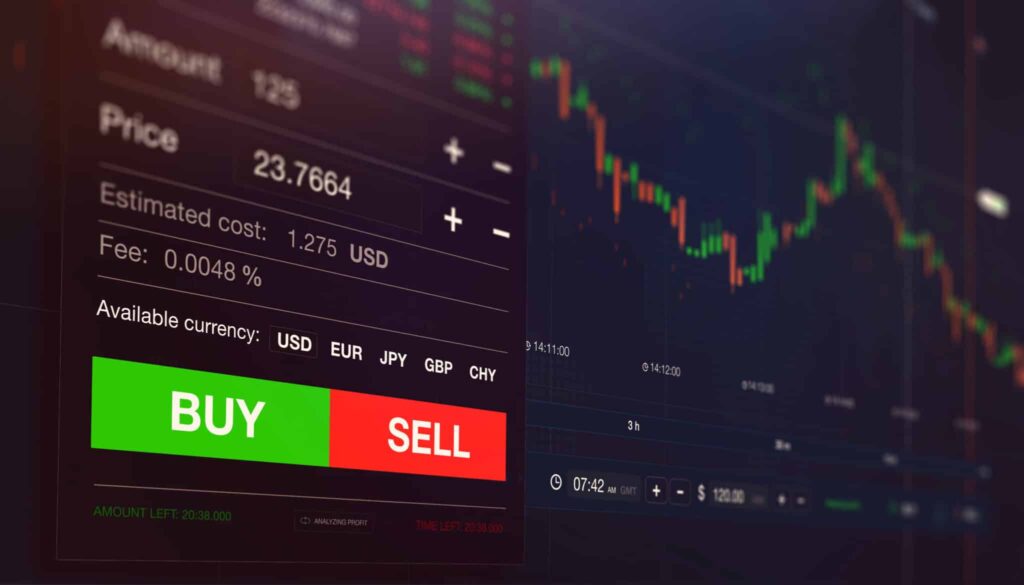
Most forex traders lose money eventually. Lack of preparation, poor leverage, insufficient skill sets, and emotional exhaustion all take a toll, resulting in losses that cause the trader to “wash out” of the forex game, making way for the next player.
The profitable minority invests many hours developing skillsets, researching, and evaluating new systems and methods to understand how to overcome these headwinds.
It is important to note that the interbank quotation system is often disrupted by supply and demand that has nothing to do with market-moving events or economic releases as banks all over the globe attempt to manage sovereign and credit risk via bid and ask prices.
These offer a significant threat to the average novice who becomes comfortable between planned market movers, fails to implement stop-loss orders, or takes excessive short-term exposure relative to their degree of competence.
Ironically, the broker chosen by a novice trader poses the most danger. The enormous interbank system is a mishmash of ‘regulated brokers’ who provide equitable market access and ‘unregulated brokers’ who exploit consumers’ lack of expertise.
Many of these businesses are situated in offshore tax havens, unlike the United States, the United Kingdom, the European Union, or Australia, which strictly regulate currency trading.
Unregulated brokers do the greatest harm when they run a ‘dealing desk’ that takes the opposite side of a customer’s position and manipulates price through ‘requoting’ to activate stops and induce unanticipated losses, particularly while most active traders are sleeping.
When you end an account with an unregulated broker, it might also be difficult to retrieve your funds.
How can Botswanans start trading Forex?
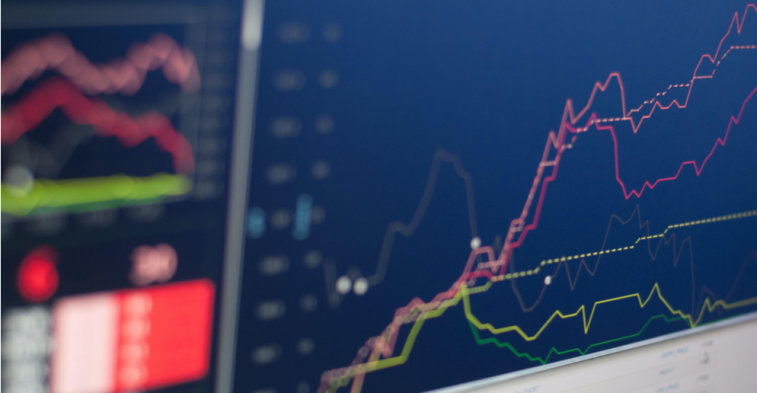
Many aspire to earn money in the foreign exchange market. However, few traders are willing to put in the necessary preparation work. Online forex trading has made forex trading simpler than ever before. However, most new traders continue to lose money.
The loss includes unfamiliarity with the market, inadequate trading capital, lack of adherence to a trading strategy, and failure to use solid money management practices to safeguard trading capital.
After overcoming these obstacles, however, anybody has a shot of becoming a successful forex trader. Therefore, Botswanans can consider these steps to start trading Forex.
Make sure that you are connected to the Internet
To trade Forex with an online broker, you must have access to a dependable Internet connection with minimum service disruptions.
Additionally, you need a smartphone, tablet, or computer to use a trading platform if your internet connection fails while trading, you might lose money if the market moves against you.
The Forex markets move quickly, and if your connection is poor or fails, you will lose money. Profitable deals may turn into losing trades in the blink of an eye. Many Botswanans trades on their mobile phones. However, these devices should not be utilized as the primary trading platform.
Learn to Trade Forex
As a beginner in forex trading, it is essential to comprehend the currency market’s fundamentals. These fundamentals will help you understand the foreign exchange market’s essential aspects, helping you make better-informed decisions while trading currencies.
Botswanan traders have a wealth of information at their fingertips, with brokers offering free courses, guides, tutorials, eBooks, and other educational materials and resources.
Find a suitable Forex Broker
The selection of a forex broker should never be made hastily. Instead, take your time and consider your alternatives carefully.
There is a considerable probability that you will spend a significant amount of money on the brokerage’s site. Consider the following crucial factors while searching for and assessing service providers:
➡️ You should not entrust your capital to an untrustworthy broker. To confirm the platform’s legitimacy, it is prudent to check its registration with a regulatory agency.
➡️ Trading and non-trading fees – You will always have to pay some commission or transaction cost, so it is prudent to shop around for the most affordable brokerage fees. Also, consider that it may be necessary to forgo the cost of security.
➡️ Convenient deposits and withdrawals – A dependable forex broker should make it simple to withdraw your profits.
➡️ Forex trading for beginners might be difficult when you start. Choose a broker with an intuitive trading interface that provides all the necessary information to get started.
➡️ You will want to know that a support system is in place if you face technological problems. Therefore, before beginning to use a platform, it is essential to study the customer support choices accessible.
➡️ Additional Services – Some brokerages may provide additional services, such as VPS hosting for continuous trading, low spreads, and protection against negative balances.
If you try to choose a dependable broker, your trading experience will be far more pleasant.
Understand the Basic Principles
Regardless of the knowledge you acquire while educating yourself, there are a few fundamental concepts that all successful traders must embrace while learning how to begin Forex trading.
➡️ Manage expectations: Avoid being too preoccupied with earnings. This anxiousness might impair one’s judgment.
➡️ Define your trading risk profile and only invest what you can afford to lose.
➡️ Select a trading strategy: When beginning off, choose a strategy you deem suitable. Then, educate yourself more on this method and start on a new one after you have mastered the first.
➡️ Control your emotions: Never allow your emotions to influence your trading selections; always adhere to your approach.
➡️ Utilize stop losses and profit taking: “stop losses” protects you from suffering significant losses if the market falls sharply and quickly, while “take profits” assures you capitalize on market gains.
➡️ Be informed of the markets: Always monitor market activity to be aware of current trends or major events that might influence the markets.
➡️ Ensure that you do not subject yourself to an excessive number of hazards while you are just starting. Ensure that the chances you perceive are genuine and do not involve excessive risk.
➡️ There is not a single trader who can provide a trading statement that does not contain at least one loss. Even the most seasoned professionals endure losses. However, successful trader makes more money than they lose.
➡️ Create a trading strategy: Create a trading plan to govern your whole trading activity. This will prevent you from adopting undesirable habits, such as overtrading, from the start.
Understand Risk and How to Manage it
Never trade more money than you can afford to lose. When deciding how much to start Forex trading with, your personal resources and risk tolerance are crucial factors to consider. Trading may sometimes be an anxious and stressful activity.
An easy method to mitigate this is to trade with restraint. This will assist you in managing these situations. A prudent rule is not to risk more than 1 or 2 percent of your money each deal. Instead, utilize 1% for the sake of convenience.
Quantifying the risk associated with a certain deal is difficult. You may define risk as the amount of loss you are prepared to endure before terminating a trade. However, this certainly understates the risk since you may change your mind and accept a higher loss in the future.
Occasionally, a market may move quicker than you can respond. Utilizing a stop-loss is one method for attempting to close out a trade and assess its risk. However, keep in mind that a standard stop order is not guaranteed.
Once its level is reached, a stop order becomes an order to trade on the market. However, due to slippage, your stop-loss order may not be executed in the case of a market with rapid price movement or gaps.
Start Trading Forex with a Demo Account
Numerous broker platforms will allow you to practice with demo trades and real money. It eliminates the danger and gives you access to everything you need to begin learning about the procedure.
During your exploration of your demo account, keep track of how you respond when you win or lose money. Discipline is necessary to prevent losing too much, and it is easy to get overconfident when things are going well. This experience will instruct you on risk management.
Avoid rushing through your trial time. Instead, utilize the opportunity to study tactics and experiment with alternative ways. You may also experiment with currency pairings and familiarize yourself with various trading tools and strategies.
Learn about Trading Analysis
➡️ Technical Analysis – Technical analysis studies a particular asset’s price trends. The objective is to detect pricing patterns to anticipate future price fluctuations. There are several methods for identifying market trends and patterns. However, many technical analysts use chart patterns, candle patterns, and indicators.
Fundamental Analysis – Fundamental analysis is a method for forecasting the price of an asset by analyzing financial markets. In Forex fundamental analysis, experts concentrate on the status of the economy as a whole and analyze several elements, including:
- The employment rates
- Inflation rates
- GDP based on international commerce and manufacturing
In Forex and other markets, the core principle of fundamental analysis is that an asset’s current price may not reflect its true worth. Subsequently, the markets may misprice a particular asset in the near term, according to fundamental research.
Fundamentalists think that even if an asset’s price is incorrect in the near term, it will return to its true value. The objective of fundamental analysis is to determine an asset’s true worth, compare it to its current price, and uncover trading opportunities.
In contrast to technical analysis, which focuses only on the current price of an item, fundamental analysis investigates every factor except the price.
Register a Micro Account and Deposit Funds
After selecting a broker, monies may be deposited into a trading account. Most online forex brokers allow a variety of deposit methods, including bank wire transfers, debit card payments, and transfers through electronic payment providers such as Skrill and PayPal.
A trial account may educate you a great deal about forex trading. However, putting virtual money on the line differs from putting real money in danger.
Once you are confident enough to transition away from demo trading, you should open a micro account that restricts you from placing smaller deals.
Once you begin risking your own funds, every loss significantly affects your finances. Unfortunately, demo accounts, books, and self-help materials cannot teach you as much about safe trading as a trading mentor.
Do not take excessive chances while you use a Micro Account. Before using leverage or choosing extremely volatile currency pairings, beginners must have a deeper, more practical understanding of Forex trading.
While some of these choices may pay off, they will do so much more and so much more often if they are based on actionable insights and research.
Choose a Trading Platform
Your broker will need you to download or access an online forex trading platform. Some of the most popular third-party platforms are:
➡️ MetaTrader 4
➡️ MetaTrader 5
➡️ cTrader
➡️ ZuluTrade
➡️ NinjaTrader
Some of the best proprietary trading platforms that forex brokers offer include:
➡️ AvaTradeGO
➡️ Exness App
➡️ HF App
➡️ IBKR
➡️ eToro Platform
➡️ FBS Trader
➡️ FXTM Trader
➡️ MarketsX
➡️ xStation5, etc.
Start Trading
Before engaging in trading, it is essential to comprehend currency pairings. Traders who comprehend which possibilities give the highest return on investment and which ones to avoid, have access to a huge array of options.
For instance, EUR/USD is regarded as one of the most stable currency pairs, making it an excellent starting point.
As your familiarity with currency pairings grows, you can begin trading more volatile combinations. It is also prudent to maintain an economic calendar ready so that you can monitor the latest news and releases and anticipate price fluctuations.
What to Consider when choosing a Forex Broker
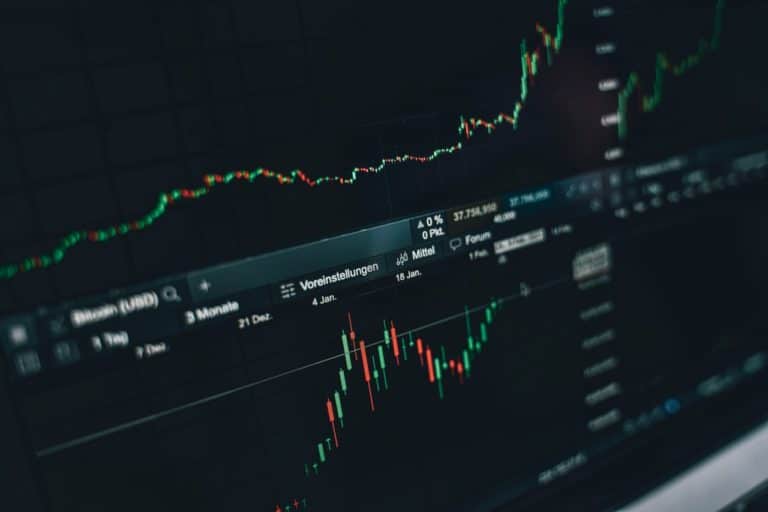
Botswanan traders must evaluate the following components of a forex broker to decide whether the broker is suited to their unique trading objectives and needs.
➡️ Inspect the broker’s regulations and licensing against the register of the market regulator that they claim to be regulated by. Otherwise, your capital and potential trading profits could be at stake.
➡️ Verify whether your broker guarantees the security of customer funds. This implies that your funds are kept distinct from the broker’s assets, and the broker is thus prohibited from using them.
➡️ Consider the trading costs in terms of the spreads and commissions charged. With broad spreads, it will be tough to generate a profit since you will spend more when you buy and get less when you sell.
➡️ Evaluate the trade execution speed of your broker. The execution speed indicates that your orders are executed without delay, at the best possible market price, and without rejections or requotes.
➡️ Beginners should trade modest quantities to reduce their risk. Select a broker that provides trading accounts with micro lots and a minimal minimum deposit.
➡️ Choose a broker that gives you all the market data and analytical tools you need to make lucrative investments.
➡️ A dependable broker enables you to alter the leverage whenever you choose. On the other hand, brokers that require you to employ the same high leverage are just interested in seeing you lose money. Therefore, your broker should ideally let you adjust your leverage by email.
➡️ Your broker should ideally provide you with a wide variety of trading platforms with top-tier features, such as a broad range of tradable financial products, live market news, and technical analysis. In addition, these platforms must be innovative web-based organizations that contribute to the growth and security of investments.
➡️ Forex is a 24-hour market, and as a customer, you have every right to get competent assistance around the clock. The ideal broker provides around-the-clock client service through live chat, email, and telephone in several languages. Ideally, a resolute Personal Account Manager is available 24 hours a day to answer your questions and assist you in optimizing your trading activities.
➡️ In foreign exchange, speed is crucial. And this applies to withdrawals as well. A competent broker ensures 100% automated deposits and same-day withdrawals with a selection of payment options that fit the demands of a diverse clientele without any hidden costs or commissions.
➡️ There is no long-term benefit without knowledge and experience. Botswanans should choose a forex broker with a comprehensive instructional program, preferably free trading tutorials, webinars, and seminars led by pros.
The Best Forex Brokers in Botswana
In this article, we have listed the best brokers that offer forex trading to traders in Botswana. In addition, we have further identified the brokers that offer additional services and solutions to Botswanan traders.
Best MetaTrader 4 / MT4 Forex Broker in Botswana
Min Deposit
USD 25
Regulators
FCA UK
Trading Platform
MT5, MT4, OctaTrader
Crypto
Yes
Total Pairs
28
Islamic Account
Yes
Trading Fees
Low
Account Activation Time
24 Hours
Overall, OctaFX is the best MT4 forex broker in Botswana. OctaFX is an MT4 and MT5 broker that provides Botswanans with various markets. OctaFX offers a choice of accounts via MT4, including ECN and STP accounts, with superior trade execution.
Best MetaTrader 5 / MT5 Forex Broker in Botswana
Min Deposit
$100 / 1 342 BWP
Regulators
ASIC, FSA
Trading Desk
MetaTrader 4, MetaTrader 5, Ava Social, Ava Protect, Trading Central
Crypto
Yes
Total Pairs
55+
Islamic Account
Yes
Trading Fees
Low
Account Activation Time
24 Hours
Overall, AvaTrade is the best MetaTrader 5 forex broker in Botswana. In addition, AvaTrade is regarded as one of the most secure MT5 forex brokers.
No commission is charged for trading currency pairings, only leaving the spread to be paid. A demo account is also available for traders to sharpen their abilities via MT5 and several other platforms.
Best Forex Broker for beginners in Botswana
Min Deposit
$100
Regulators
CFT, NFA
Trading Desk
MetaTrader 4
Crypto
Yes
Total Pairs
50
Islamic Account
No
Trading Fees
Low
Account Activation Time
24 Hours
Overall, FOREX.com is the best forex broker for beginners in Botswana. FOREX.com is a broker renowned for low trading fees and beginner-friendly solutions. In addition, FOREX.com offers several educational materials and a helpful demo account.
Best Low Minimum Deposit Forex Broker in Botswana
Min Deposit
$10 / 134 BWP
Regulators
CBCS, CySEC, FCA, FSA, FSC, FSCA, CMA
Trading Desk
MetaTrader 4 and MetaTrader 5
Total Pairs
107
Islamic Account
Yes
Trading Fees
Low
Account Activation Time
24 Hours
Overall, Exness is the best Low Minimum Deposit Forex Broker in Botswana. Exness has a minimum deposit requirement of 10 USD / 130 BWP, making it easy for Botswanans to start trading 278 instruments.
Exness also offers MT4 and MT5 through which trades can be made. In addition, it offers some of the best trading tools, charting capabilities, technical indicators, expert advisors, and more.
Best ECN Forex Broker in Botswana
Min Deposit
USD 0
Regulators
CySEC, FCA, DFSA, FSCA, FSA, CMA
Trading Desk
MT4, MT5, HFM APP
Crypto
Yes
Total Pairs
50+
Islamic Account
Yes
Trading Fees
0
Account Activation Time
24 Hours
Overall, HFM is the best ECN forex broker in Botswana. HFM is a hybrid forex and CFD broker that uses STP and ECN technology to ensure that Botswanans get the best pricing, minimal slippage, no requotes, and the fastest trade execution.
HFM uses the best liquidity providers who aggregate the pricing that Botswanans can see on MT4, MT5, and the HF App for Android and iOS.
Best Islamic / Swap-Free Forex Broker in Botswana
Min Deposit
USD 10 / 136 BWP
Regulators
CySec, FCA
Trading Desk
None
Crypto
Yes
Total Pairs
47
Islamic Account
Yes
Trading Fees
Low
Account Activation Time
24 Hours
Overall, eToro is the best Islamic / Swap-Free forex broker in Botswana. eToro is a renowned social trading platform that offers Muslim traders an Islamic Account.
eToro does not charge any interest on positions held for over 24 hours. However, registering an Islamic Account can be expensive initially, requiring a 1,000 USD / 19, 252 BWP deposit.
Best Forex Trading App in Botswana
Min Deposit
USD 0 / 0 BWP
Regulators
ASIC
Trading Desk
MetaTrader 4
Crypto
Yes
Total Pairs
300
Islamic Account
Yes
Trading Fees
Low
Account Activation Time
24 Hours
Overall, CMC Markets is the best forex trading app in Botswana. In addition, CMC Markets offers a user-friendly mobile app with research tools, powerful charts, customizable watch lists, news reports, and a range of educational materials.
Best Lowest Spread Forex Broker in Botswana
Min Deposit
USD 0 / 0 BWP
Regulators
FCA, CySEC, IFSC, KNF
Trading Desk
No Trading Desk
Crypto
Yes
Total Pairs
48
Islamic Account
Yes
Trading Fees
Low
Account Activation Time
24 Hours
Overall, XTB is the best lowest-spread forex broker in Botswana. XTB is a well-known forex and CFD broker with low and competitive forex spreads from 0.1 pips depending on the financial instrument and the market conditions.
XTB is also a good broker in terms of educational materials and research capabilities, providing traders with comprehensive market analysis across markets.
Best Nasdaq 100 Forex Broker in Botswana
Min Deposit
USD 10
Regulators
CySec, FSCA
Trading Desk
MetaTrader 4 and MetaTrader 5
Crypto
Yes
Total Pairs
60
Islamic Account
No
Trading Fees
Low
Account Activation Time
24 Hours
Overall, FXTM is the best Nasdaq 100 forex broker in Botswana. FXTM is a multi-regulated forex and CFD broker that accommodates Botswanan traders with a keen interest in Nasdaq. Traders can expect low and competitive spreads, a choice between accounts, and powerful trading platforms.
Best Volatility 75 / VIX 75 Forex Broker in Botswana
Min Deposit
USD 0 / 0 BWP
Regulators
IGRs
Trading Desk
MetaTrader 4
Crypto
Yes
Total Pairs
80
Islamic Account
Yes
Trading Fees
Low
Account Activation Time
24 Hours
Overall, IG is Botswana’s best Volatility 75 / VIX 75 forex broker. IG is one of the best CFD brokers with powerful proprietary trading technology.
IG is well-regulated and offers Botswanans access to VIX75, with spreads from 0.04 pips / 0.13% and zero commission charges.
Best NDD Forex Broker in Botswana
Min Deposit
USD 50 / 672 BWP
Regulators
FCA
Trading Desk
MetaTrader 4
Crypto
Yes
Total Pairs
–
Islamic Account
Yes
Trading Fees
Low
Account Activation Time
24 Hours
Overall, FXCM is the best NDD forex broker in Botswana. FXCM is a No-Dealing Desk broker with STP and ECN execution across several markets.
In addition, FXCM offers a choice between third-party platforms in addition to technical indicators, charting tools, and competitive trading conditions.
Best STP Forex Broker in Botswana
Min Deposit
USD 10
Regulators
IFSC
Trading Desk
Meta Trader 4
Crypto
Yes
Total Pairs
36
Islamic Account
No
Trading Fees
Low
Account Activation Time
24 Hours
Overall, RoboForex is the best STP forex broker in Botswana. RoboForex is popular forex and CFD broker with competitive trading conditions. RoboForex offers STP execution with liquidity sourced from top providers.
Botswanans can expect access to over 12,000 instruments via powerful and innovative third-party platforms.
Best Sign-up Bonus Broker in Botswana
Min Deposit
50 USD / 682 BWP
Regulators
CYSEC
Trading Desk
MetaTrader 4
Crypto
Yes
Total Pairs
50
Islamic Account
Yes
Trading Fees
Low
Account Activation Time
24 Hours
Overall, Windsor Brokers is the best sign-up bonus broker in Botswana. Windsor Brokers is a well-regulated broker that offers Botswanans a welcome account funded with 30 USD in trading credit. With this account, Botswanans can explore the platform or risk-free test their strategies.
You might also like: Best High Leverage Forex Brokers
You might also like: Best Forex Brokers that Accept M-Pesa
You might also like: Best Volatility 75 Forex Brokers
You might also like: Best NASDAQ 100 Brokers
You might also like: Best STP Forex Brokers
Conclusion
The objective of forex trading is to swap one currency for another in anticipation of a favorable price shift. Currencies are traded in pairs. Therefore, if you believe a pair will rise, you may benefit from a rising market by going long.
However, it is essential to remember that trading is hazardous, and you should never risk more money than you can afford to lose.
Frequently Asked Questions
Is Forex trading legal in Botswana?
Trading actual currencies are restricted to entities who are licensed in Botswana to do so. However, forex traders in Botswana are free to trade forex CFDs through international brokers.
Where can Botswanans learn to trade Forex?
Botswanans can use their broker’s educational section, or they can find resources on the Internet, especially on YouTube.
Will Botswanans pay tax on forex earnings?
Botswanans might be subject to capital gains tax on their forex earnings.
What are the best forex strategies for Botswanan beginners?
The best forex strategies for Botswanans include day trading, swing trading, position trading, and scalping.
Which forex pairs should Botswanans trade at night?
Some of the best forex pairs to trade at night are AUD/NZD, NZD/JPY, and AUD/JPY.
What is forex trading?
Forex trading is exchanging one currency for another to profit from the trade.
Which brokers do the most successful traders use?
- Exness
- Avatrade
- HFM
- Khwezi Trade
- IG
- FXCM
- Tickmill
- Trade Nation
- FXTM
What is some jargon that all beginner forex traders must understand?
Understanding the terms bid, ask price, and spread is essential for any investor looking to trade in the forex market. They refer to the prices of currencies when buying and selling, as well as the difference between those two prices.
Which broker offers a mobile app to Botswana traders?
- RoboForex
- IC Markets
- easyMarkets
- Pepperstone
Which brokers offer a sign-up bonus for first-time traders in Botswana?
- XM
- Tickmill
- SuperForex
- FBS
- JustMarkets
- HFM
- InstaForex
- FreshForex
- ForexChief
- Admiral Markets
- AvaTrade
- FXCM
- FXGiants
- Windsor Brokers
Addendum/Disclosure:
No matter how diligently we strive to maintain accuracy, the forex market is a volatile environment that may change at any time, even if the information supplied is correct at the time of going live.



 Exness Review
Exness Review













